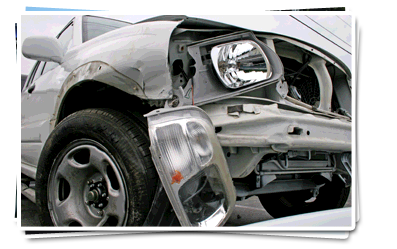Let's Talk Collision

Most people "recognize" the term Collision Coverage, but lack a full understanding of what it covers and why it is necessary to have. Collision Coverage is extremely important simply because it will cover you if your vehicle is hit by another vehicle or object. It also covers you if your vehicle is in fact the one who did the hitting. This kind of insurance coverage pays for your vehicle's repairs, minus the deductible that you chose. With Collision Coverage comes much protection. Unlike Property Damage Liability, when your vehicle is involved in an accident with another vehicle or damaged by property in some form, you are able to submit a claim to your insurance company. According to the contract that you have agreed upon with your insurer, will ultimately be the cost that your insurance company will pay, minus your deductible of course. Best of all, the claim is still valid even if you are at fault.
Although Collision Coverage protects your vehicle in the event of the unfortunate, in order for you to be protected from theft, vandalism, severe weather conditions, or animals, you must purchase Comprehensive Coverage as well. By doing so, you will be considered as having full-coverage insurance. With that said, there are certain circumstances where your insurance policy, whether full-coverage or not, will not cover your damages. These include: mechanical, freezing, and wear and tear on your vehicle's system.
Just like the previous coverage plan, you will be asked to select a deductible amount in order to receive a proper quote, which is generally in the range of $100 to $2,500. The same goes for Collision Coverage, the higher the deductible, the lower your premium rate will be. Your collision premium will be much higher, the lower your deductible is. Each time you are involved in a collision claim, your deductible is required, so always remember to keep your current financial situation in mind when selecting the appropriate deductible for you.
Does My State Require Collision Coverage?
Absolutely not! Collision Coverage is not required by any state. As mentioned earlier, you are not required to purchase insurance that covers your own car's damages. Property Damage Liability is what most states ask for, but in the case of a leased vehicle, you may be required by them to purchase Collision Coverage. In most cases, they will even specify the deductible amount. Before you make any changes to your current deductible, be sure to check with the company who financed your vehicle for specific instructions or limitations.
Life Without Collision Coverage...
Can be pretty expensive, especially when you are involved in an accident that requires serious maintenance and repairs, and well, an expert mechanic who you wish would turn into a magician. You see, without Collision Coverage, the costs of these repairs are left all on you. Yes you! Depending on the severity of the situation, vehicle repairs can seriously hurt your bank. Unless the other party involved in the collision is found to be responsible for the damages and carries Property Damage Coverage, in which you can submit a claim through, you are left stuck to foot the bill. Another case where you may submit a claim is if you are hit by a vehicle whose driver is uninsured and you carry Uninsured Motorist Property Damage Coverage in your insurance policy, which will be discussed further. Whether you own it or lease it, anytime you drive a fancy, new car, you may not want to take the risk of not having Collision Coverage as protection, for added security and a peace of mind. In the event that the unfortunate occurred and your vehicle was stolen, you could find yourself knee deep in debt trying to recover the costly automobile which was wrongfully taken. Although we would like to think that thefts of high valued items only happen in the movies, in all reality, it doesn't. Collision Coverage provides serenity in knowing that your vehicle can be replaced without liquidating all that you have worked for. We suggest that you take into consideration the value of your vehicle and carefully make your coverage selections partly based on that.